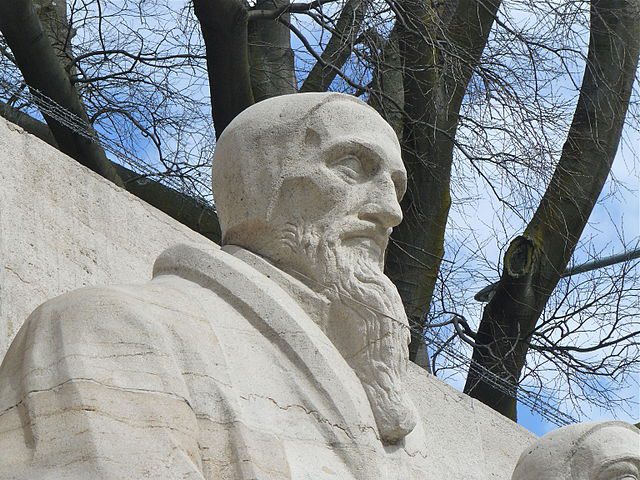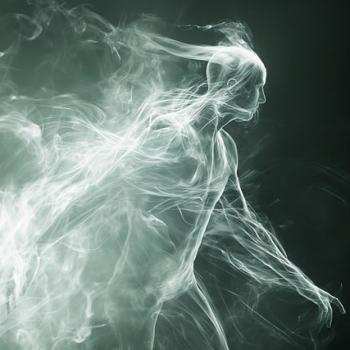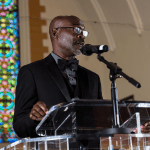
A Calvinist stated: “I am having trouble distinguishing the Calvinist doctrine of Total Depravity from the determination of the Second Council of Orange.” [529 AD]
Particularly, he was referring to the following decrees:
CANON 7 If anyone affirms that we can form any right opinion or make any right choice which relates to the salvation of eternal life, as is expedient for us, or that we can be saved, that is, assent to the preaching of the gospel through our natural powers without the illumination and inspiration of the Holy Spirit, who makes all men gladly assent to and believe in the truth, he is led astray by a heretical spirit, and does not understand the voice of God who says in the Gospel, “For apart from me you can do nothing” (John 15:5), and the word of the Apostle, “Not that we are competent of ourselves to claim anything as coming from us; our competence is from God” (2 Cor. 3:5).
CANON 14 No mean wretch is freed from his sorrowful state, however great it may be, save the one who is anticipated by the mercy of God, as the Psalmist says, “Let thy compassion come speedily to meet us” (Ps. 79:8), and again, “My God in his steadfast love will meet me” (Ps. 59:10).
CANON 20 That a man can do no good without God. God does much that is good in a man that the man does not do; but a man does nothing good for which God is not responsible, so as to let him do it.
CANON 22 Concerning those things that belong to man. No man has anything of his own but untruth and sin. But if a man has any truth or righteousness, it from that fountain for which we must thirst in this desert, so that we may be refreshed from it as by drops of water and not faint on the way.It’s a huge difference. You are superimposing (as Protestants often do) onto Orange your own notions, which take things much further.
It’s a huge difference. He was superimposing (as Protestants often do) onto Orange their own notions, which take things much further.
Catholics believe in sola gratia. Man can do no good except by God’s grace. Man cannot be saved except by God’s grace (not by works). That’s what Orange is teaching, and the Catholic Church has always believed this.
The Calvinist position is very different. It agrees with the above tenets (sola gratia or Grace Alone for salvation), but it also denies all ability to do good in an unregenerate man. The difference, bluntly and succinctly put, is the following:
1) Catholic: man can only do good by God’s grace. Even unregenerate men can do a measure of good by this grace, but cannot ever be saved in so doing.
2) Calvinist (not even all Protestants): the only man that can do the good that comes entirely by God’s grace is the regenerate man.
Notice, then, that the second category of thought is far more restrictive. For the Catholic, grace is more widely available, and good acts are not restricted to regenerate (or in Protestant thinking, “already-saved”) men. I established at length, from biblical argumentation, I think, that the Catholic position is harmonious with the entire biblical teaching, whereas Calvinism is not. We agree that the “natural man” cannot be saved or do any good but by God’s grace. But we deny that he is entirely unable to do what is spiritually good because he is not yet regenerated.
* * * * *
A person in my combox asked:
I have long had questions about why Calvinist’s are so quick to point to the Second Council of Orange in support of their teachings. It is my understanding that there are other teachings from this Council that completely contradict Calvinism,(not to mention Luther, Zwingli etc) e.g., issues of Free Will. Is there anything you can point to specifically in this Council to show this?
I replied:
Good question.
Calvinists think that human free will to do anything good was completely lost at the Fall (total depravity). Orange (from the year 529) and Trent and Catholicism hold that it was greatly impaired or weakened but not completely corrupted:
2nd Orange:
CANON 1 If anyone denies that it is the whole man, that is, both body and soul, that was “changed for the worse” through the offense of Adam’s sin, but believes that the freedom of the soul remains unimpaired and that only the body is subject to corruption, he is deceived by the error of Pelagius . . .
CANON 8 . . . free will, which has manifestly been corrupted in all those who have been born after the transgression of the first man, it is proof that he has no place in the true faith. For he denies that the free will of all men has been weakened through the sin of the first man . . .
This one sounds more “Calvinist” though:
CANON 13 Concerning the restoration of free will. The freedom of will that was destroyed in the first man can be restored only by the grace of baptism, for what is lost can be returned only by the one who was able to give it. Hence the Truth itself declares: “So if the Son makes you free, you will be free indeed” (John 8:36).
It would then become a matter of interpreting this canon in relation to the others (just as we do Scripture), and we would probably have to go back to the original language to resolve that.
We see the notion of merit for grace-produced works, which Protestants deny:
CANON 18 That grace is not preceded by merit. Recompense is due to good works if they are performed; but grace, to which we have no claim, precedes them, to enable them to be done.
Orange denies that human nature was totally corrupted (as Luther and Calvinists would say):
CANON 19 That a man can be saved only when God shows mercy. Human nature, even though it remained in that sound state in which it was created, could be no means save itself, without the assistance of the Creator; hence since man cannot safe- guard his salvation without the grace of God, which is a gift, how will he be able to restore what he has lost without the grace of God?
The following canons may perhaps refer in part to good works done by unregenerate man (contra Total Depravity):
CANON 23 Concerning the will of God and of man. Men do their own will and not the will of God when they do what displeases him; but when they follow their own will and comply with the will of God, however willingly they do so, yet it is his will by which what they will is both prepared and instructed.
CONCLUSION . . . The sin of the first man has so impaired and weakened free will that no one thereafter can either love God as he ought or believe in God or do good for God’s sake, unless the grace of divine mercy has preceded him. . . .
Again, we see a great weakening of free will, but it isn’t totally wiped out. This was Augustine’s position as well (which is equally distorted by Calvinists).
Men contribute by cooperation, to their salvation, precisely as in Scripture and dogmatic Catholic teaching:
CONCLUSION According to the catholic faith we also believe that after grace has been received through baptism, all baptized persons have the ability and responsibility, if they desire to labor faithfully, to perform with the aid and cooperation of Christ what is of essential importance in regard to the salvation of their soul. . . .
Predestination to hell (implied) or to evil is rejected:
CONCLUSION . . . We not only do not believe that any are foreordained to evil by the power of God, . . .
Nothing in these canons contradicts Catholic teaching at all, whereas several points contradict Calvinism.
See the web page with the canons (Protestant source).
The Catholic Encyclopedia article, “Councils of Orange” is very instructive as well, and states that the decrees were “drawn almost in their entirety from the works of St. Augustine and the “Sententiæ” of St. Prosper of Aquitaine . . . and these in turn were freely used by the Council of Trent in its condemnation of Luther.” Note the following points of the canons, that expressly contradict Calvinist Total Depravity. I have added the relevant canon excerpts in brackets:
Operation of grace before justification. It precedes every effort conducive to salvation. From it proceed:
(a) prayer (can. iii); [“If anyone says that the grace of God can be conferred as a result of human prayer, but that it is not grace itself which makes us pray to God, he contradicts the prophet Isaiah”]
(b) the desire of justification (iv); [“even our will to be cleansed comes to us through the infusion and working of the Holy Spirit”]
(c) the inception of faith (v); [“not only the increase of faith but also its beginning and the very desire for faith, by which we believe in Him who justifies the ungodly and comes to the regeneration of holy baptism”]
(d) every effort towards faith (vi); [“we believe, will, desire, strive, labor, pray, watch, study, seek, ask, or knock, . . . by the infusion and inspiration of the Holy Spirit within us . . . we have the faith, the will, or the strength to do all these things as we ought”]
(e) every salutary act (vii); [“form any right opinion or make any right choice which relates to the salvation of eternal life, . . . we can be saved, that is, assent to the preaching of the gospel”]
(f) every preparation to justification (viii, xii); [“ability to seek the mystery of eternal salvation by themselves {with} the revelation of God” / “God loves us for what we shall be by his gift”]
(g) all merit (xviii). [“Recompense is due to good works if they are performed; but grace, to which we have no claim, precedes them, to enable them to be done”]
One can see the sadly common cynically selective citation and virtual intellectual dishonesty in a Calvinist treatment of the council, from the website Monergism.com. First it claims (I was so surprised that I almost fainted) that the council contradicts Catholic theology, and that the Catholic Church supposedly “abandoned” its decrees later on (which is sheer nonsense, but boilerplate anti-Catholic rhetoric):
The Council of Orange is one of the most important councils of the early Church and was often pointed to by the Reformers as evidence that Rome had abandoned the theology of its own Council Fathers and Church Doctors. All persons of faith should take the time to get to know it.
Having made this judgment that is contradicted again and again in the council, as we have seen above, the site decides to selectively cite the canons, to supposedly bolster its own “Reformed” opinion (a classic case of quoting out of context):
Below we focus on five (5) of the 25 Canons that have been influential to to the Reformed understanding of the work of Christ in salvation. These truths were hugely consequential in 16th century Reformation Theology and its apprehension of the doctrine’s of grace. . . . (Especially take note of Canon’s 6-7).
Thankfully, and to its credit, the site does make a link to all the canons. But this is classic anti-Catholic (usually Calvinist) Protestant methodology: highlight a few Bible verses (or conciliar canons), that, taken in isolation, appear to support one’s entire viewpoint. Then ignore all the counter-evidence from the same source (Bible or councils or Church fathers) that prove that there is not an equivalence of viewpoint at all. Assume that readers will uncritically swallow all of this without thinking critically for themselves and “presto”: you create more cookie-cutter anti-Catholic Calvinists, who are convinced that the early Church was far closer to Calvinism than to Catholicism.
We need to expose such nefarious methods, which are a disgrace to academic honesty and rigor, and the facts of history, at every turn. I’m happy to do my part!
I did find one Calvinist Protestant writer who (quite refreshingly) admitted that Orange was not completely in accord with Calvinism. He admits that it does not assert either double predestination, or a completely nullified human free will, and concedes that it does teach baptismal regeneration and a “merit of good works”:
Problems with the Synod of Orange- (1) The irresistibility of grace is not affirmed. (2) Predestination to evil is condemned. (3) The reception of grace is so bound to baptism that the sacramental quality of grace and the merit of good works are put in the foreground. “We also believe this to be according to the Catholic faith, that grace having been received in baptism, all who have been baptized, can and ought, by the aid and support of Christ, to perform those things which belong to the salvation of the soul, if they will labor faithfully” (in Latin known as ‘ex opera operato’) (emphasis mine). The sharp points of Augustine were blunted and therefore this would lead to a great deal of error during the Medieval period of the Church. (Charles R. Biggs, “Important Creeds and Councils of the Christian Church”)
Chris Jones, a Lutheran, writing on an Orthodox site, hit the nail on the head concerning this council, and how it is abused by Calvinists:
It seems to me that 2d Orange is perfectly consistent with the sensus patrum.
2d Orange affirms, along with St Augustine, the primacy of grace; but it is hardly the bedrock of monergism that the Reformed try to make of it. The canons of 2d Orange make it clear that, in the economy of salvation, God’s grace must come first, and apart from grace fallen man is powerless even to begin the process of salvation. But 2d Orange is equally clear that grace, once given, does not preclude, but rather requires, the believer’s cooperation. Read the concluding statement (following the canons themselves) of the council’s decrees to see how definitively it teaches the necessity for cooperation, post-baptism.
The relationship among prevenient grace, human cooperation, and post-baptismal grace envisaged by 2d Orange is, in my view, pretty much identical with the teaching on the same subject in the Orthodox Confession of Dositheos. It is true that 2d Orange has never been explicitly recognized in the East as an orthodox council; but there is nothing in its decrees with which an Orthodox should disagree. (comment of 19 March 2007)
Protestant historian Philip Schaff, in his famous History of the Church (vol. 3, § 160. Victory of Semi-Augustinianism. Council of Orange, A.D. 529.), honestly treats (as always) aspects of the council that contradict Protestant (and especially Calvinist Protestant) tenets:
These transactions terminated at length in the triumph of a moderate Augustinianism, or of what might be called Semi-Augustinianism, in distinction from Semi-Pelagianism. At the synod of Orange (Arausio) in the year 529, at which Caesarius of Arles was leader, the Semi-Pelagian system, yet without mention of its adherents, was condemned in twenty-five chapters or canons, and the Augustinian doctrine of sin and grace was approved, without the doctrine of absolute or particularistic predestination. . . . it will suffice to give extracts containing in a positive form the most important propositions. . . .
13. The free will weakened in Adam, can only be restored through the grace of baptism.
[footnote: Arbitrium voluntatis in primo homine in infirmatum (not “amissum”). ] . . .18. Unmerited grace precedes meritorious works.
[footnote: There are then meritorious works. “Debetur merces bonis operibus, si fiant, sed gratia quae non debetur praecedit, ut fiant” Chap. 18 taken from Augustine’s Opus imperf. c. Jul. i. c. 133 and from the Sentences of Prosper Aquitanus, n. 297. But, on the other hand, Augustine also says: “Merita nostra sunt Dei munera.”] . . .23. When man sins, he does his own will; when he does good, he executes the will of God, yet voluntarily. . . .
To these chapters the synod added a Creed of anthropology and soteriology, which, in opposition to Semi-Pelagianism, contains the following five propositions:
- Through the fall free will has been so weakened, that without prevenient grace no one can love God, believe on Him, or do good for God’s sake, as he ought (sicut oportuit, implying that he may in a certain measure).
- Through the grace of God all may, by the co-operation of God, perform what is necessary for their soul’s salvation.
- It is by no means our faith, that any have been predestinated by God to sin (ad malum), but rather: if there are people who believe so vile a thing, we condemn them with utter abhorrence (cum omni detestatione)
*
At the close of this period Gregory the Great represents the moderated Augustinian system, with the gratia praeveniens, but without the gratia irresistibilis and without a particularistic decretum absolutum. Through him this milder Augustinianism exerted great influence upon the mediaeeval theology. Yet the strict Augustinianism always had its adherents, in such men as Bede, Alcuin, and Isidore of Seville, who taught a gemina praedestinatio, sive electorum ad salutem, sive reproborum ad mortem; it became prominent again in the Gottschalk controversy in the ninth century, was repressed by scholasticism and the prevailing legalism; was advocated by the precursors of the Reformation, especially by Wiclif and Huss; and in the Reformation of the sixteenth century, it gained a massive acknowledgment and an independent development in Calvinism, which, in fact, partially recast it, and gave it its most consistent form.
* * * * *
Yet more exchanges with the same person, and more arguments favoring my Catholic position:
From Calvinist Joel Beeke:
Total Depravity is not absolute depravity. Calvinists have always taken pains to state that total depravity does not mean men are animals or devils, or that they are as depraved as they could be or will be. This world is not hell. Total depravity does not mean that an unbeliever is wholly evil in everything he does, but rather that nothing he does is ever wholly good. Man is not so far fallen that he has lost all awareness of God or conscience; by God’s common goodness, he is still capable of showing domestic affection, doing civic good, and performing his duties as a citizen. He is capable of great heroism, of great physical courage, and of great acts of self-denial. Yet he is a corrupt sinner in every aspect of his nature, and as such, he is utterly incapable of performing any spiritual good in the eyes of God.
The discussion turns to a large extent on the various definitions one may give of a good act. I meant (as explained at length in my papers) exactly what you clarify, in the attempt to show that I was misrepresenting Calvinism. My quick definition of total depravity in this thread was:
. . . the only man that can do the good that comes entirely by God’s grace is the regenerate man.
This is precisely, exactly harmonious with what your impeccable (?) Calvinist source (Joel Beeke) says:
nothing he [Dave: the unbeliever or unregenerate man] does is ever wholly good . . . he is a corrupt sinner in every aspect of his nature, and as such, he is utterly incapable of performing any spiritual good in the eyes of God.
This leads to manifest absurdities. If an unregenerate man saves a child from being hit by a car, according to Total Depravity the act can be neither “wholly good” nor “spiritually good.” It’s good in some remote, multiply qualified sense, so we are told, but it lacks the purity and unmixed nature of the same act performed by a regenerate person. Moreover, according to John Calvin (cited below), “everything which proceeds from him [unregenerate man] is imputed as sin”. Such a man is utterly incapable of “charity towards [his] neighbour” and indeed, is “incapable of one righteous desire”.
Therefore, it follows inexorably by the internal logic of the position, that even an act of this extraordinarily charitable nature is still “imputed as sin” — which is an outrageous assertion indeed.
According to the Bible and Catholicism, and most of Protestantism, and Orthodoxy, on the other hand, if a thing is good, it is good, and ultimately flows from God’s grace. Men (even unregenerate ones) can do these good acts by God’s grace. At the same time, there are subjective differences in motive, degrees of consent of the will and so forth (which in terms of sin we differentiate by “venial” and “mortal”), but a good act, insofar as “good” is objectively defined) is a good act.
The Calvinist and early Lutheran perspective in these matters is a great distortion brought on by the categories of medieval nominalism, which was a corruption of Scholasticism. The objective aspects of ethics and right and wrong and righteousness were minimized and subjectivism became primary (thus motive in a good act, for Luther, was everything; unless an act was performed with utterly pure motives it was evil).
You say: “It is not a Calvinist belief that the unregenerate can do no good whatsoever, but that this good is in no way effective for salvation.”
Why are you telling me this, since in my paper on total depravity, that you seem to have read, I start with (which means I accept, as the opinion of those I am criticizing!) a definition from Presbyterian Charles Hodge, which prominently includes this aspect in it:
By total depravity, is not meant that all men are equally wicked; nor that any man is as thoroughly corrupt as it is possible for a man to be; nor that men are destitute of all moral virtues. The Scriptures recognize the fact, which experience abundantly confirms, that men, to a greater or less degree, are honest in dealings, kind in their feelings, and beneficent in their conduct. Even the heathen, the Apostle teaches us, do by nature the things of the law. They are more or less under the dominion of conscience, which approves or disapproves their moral conduct. All this is perfectly consistent with the Scriptural doctrine of total depravity,
So why is it that you assume that I somehow don’t understand this? I find it very odd. The doctrine is what it is, and I have given a correct definition of it and have, as far as I am concerned, shown with many examples how it is plainly, flatly contrary to Holy Scripture. Here are some definitions from John Calvin, lest anyone fail to grasp the hideousness and bizarre extremity of exactly what is meant by “total depravity” in the Calvinist mindset:
Hence, even infants bringing their condemnation with them from their mother’s womb, suffer not for another’s, but for their own defect. For although they have not yet produced the fruits of their own unrighteousness, they have the seed implanted in them. Nay, their whole nature is, as it were, a seed-bed of sin, and therefore cannot but be odious and abominable to God. Hence it follows, that it is properly deemed sinful in the sight of God; for there could be no condemnation without guilt. Next comes the other point—viz. that this perversity in us never ceases, but constantly produces new fruits, in other words, those works of the flesh which we formerly described; just as a lighted furnace sends forth sparks and flames, or a fountain without ceasing pours out water. Hence, those who have defined original sin as the want of the original righteousness which we ought to have had, though they substantially comprehend the whole case, do not significantly enough express its power and energy. For our nature is not only utterly devoid of goodness, but so prolific in all kinds of evil, that it can never be idle. Those who term it concupiscence use a word not very inappropriate, provided it were added (this, however, many will by no means concede), that everything which is in man, from the intellect to the will, from the soul even to the flesh, is defiled and pervaded with this concupiscence; or, to express it more briefly, that the whole man is in himself nothing else than concupiscence. (Institutes of the Christian Religion, Book II, Ch. 1, sec. 8)
Here I only wished briefly to observe, that the whole man, from the crown of the head to the sole of the foot, is so deluged, as it were, that no part remains exempt from sin, and, therefore, everything which proceeds from him is imputed as sin. (Inst., II, 1, 9)
Man, when he withdrew his allegiance to God, was deprived of the spiritual gifts by which he had been raised to the hope of eternal salvation. Hence it follows, that he is now an exile from the kingdom of God, so that all things which pertain to the blessed life of the soul are extinguished in him until he recover them by the grace of regeneration. Among these are faith, love to God, charity towards our neighbour, the study of righteousness and holiness. . . . For although there is still some residue of intelligence and judgment as well as will, we cannot call a mind sound and entire which is both weak and immersed in darkness. As to the will, its depravity is but too well known. Therefore, since reason, by which man discerns between good and evil, and by which he understands and judges, is a natural gift, it could not be entirely destroyed; but being partly weakened and partly corrupted, a shapeless ruin is all that remains. . . . in the perverted and degenerate nature of man there are still some sparks which show that he is a rational animal, and differs from the brutes, inasmuch as he is endued with intelligence, and yet, that this light is so smothered by clouds of darkness that it cannot shine forth to any good effect. In like manner, the will, because inseparable from the nature of man, did not perish, but was so enslaved by depraved lusts as to be incapable of one righteous desire. (Inst., II, 2, 12)
But as, in consequence of the corruption of nature, all our faculties are so vitiated and corrupted, that a perpetual disorder and excess is apparent in all our actions, and as the appetites cannot be separated from this excess, we maintain that therefore they are vicious; or, to give the substance in fewer words, we hold that all human desires are evil, and we charge them with sin not in as far as they are natural, but because they are inordinate, and inordinate because nothing pure and upright can proceed from a corrupt and polluted nature. (Inst., III, 3, 12)
***
(originally 1-5-09)
Photo credit: Detail (John Calvin) from the Reformation Wall in Geneva, Switzerland, sculpted in 1909 by Paul Landowski and Henri Bouchard. Photograph by Eisjen Schaaf (4-4-12) [Wikimedia Commons / Creative Commons Attribution-Share Alike 3.0 Unported license]
***

















